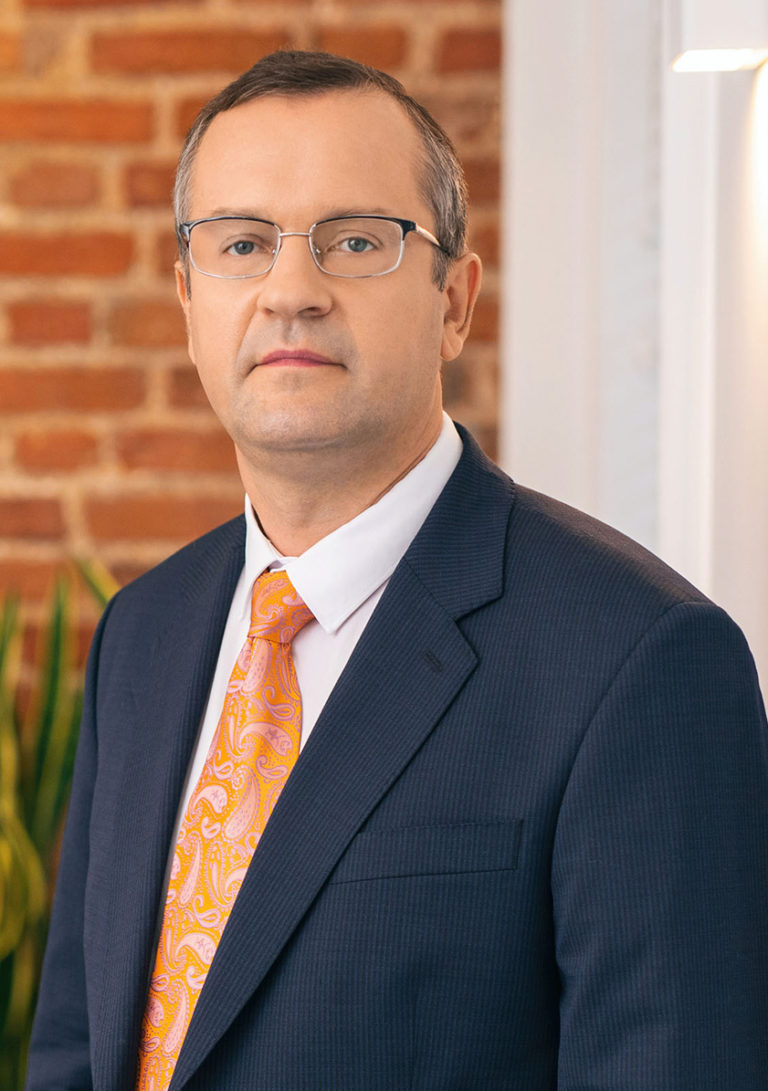
The new wave of information after the outbreak of coronavirus pandemic washed the news of environmental pollution scandals in Lithuania away to peripheries of the public sphere. Yet who knows, maybe untreated effluent is being spilled to a river or dangerous industrial waste is being dumped in forests while we are rejoicing at the decreased air pollution. Who or what is responsible for the environmental pollution or other damage in that case – an impersonal legal entity or its specific head? Judicial practice of Lithuanian courts shows that liability of the CEO and company cannot be considered the same as the company is sanctioned for actual steps, whereas its head is sanctioned for omission, i.e. for failure to take appropriate measures to avoid damage.
An erupted scandal over the damage inflicted by the company gives grounds for considerations whether the CEO, being in charge of operation of the company, has done everything to prevent it. Liability of the CEO arises when he / she has been aware of the problem at the company and has not taken steps to handle it. In such case, the company shareholders may sue the CEO for damages. Accordingly, when a company incurs losses due to redress of damage or payment of a fine, it has the right to claim the amount payable from its CEO if it is determined that the latter’s conduct was inadequate.
Liability of Grigeo’s president. Was his unawareness true?
In view of the fact that the environmental violation has been going on for years, it would be very tricky to claim that no one knew of the waste water being released to the Curonian Lagoon. Moreover, the violation had to be revealed by the financial document as one has to pay for treatment of polluted water. I would doubt if inconsistencies between the volumes of used and treated water could not be seen in the accounting. It seems equally doubtful that the president of the company was not able to notice that. The allegations made against Gintautas Pangonis, the president of Grigeo, are a signal that the law enforcement institutions also feel that way.
If Mr Pangonis is declared guilty in a criminal case, the company could claim redress of damages from him, and the only question would be the amount. Yet in the matter concerned the head of the company is also its major shareholder, so it would be weird for him to claim damages from himself.
The period of limitations for redress of damage is three years. As for Grigeo, it does not mean that the company would be able to dodge liability for its prior actions. The limitation period is usually calculated from the day when the relevant party became or should have become aware of the damage being done. It is difficult to say whether shareholders of the company could find out that the waste water was being released to the Curonian Lagoon. However, if the unlawful processes were taking place with the shareholders’ knowledge, the latter should also assume liability. In fact, all the shareholder meetings, board meetings and annual reports are intended for prevention of similar situations.
Fewer cases for CEO liability reach the Supreme Court of Lithuania
The Supreme Court of Lithuania examines dozens of CEO liability cases each year although not all of them reach the highest judicial instance. A dozen cases in one year does not seem much, but the claimed amounts in such matters are impressive, especially bearing in mind that the respondent is a person and not a business. For instance, the Supreme Court examined 18 such cases in 2014 with claims amounting to EUR 13.5 million. The claimed damages in 11 cases heard in 2017 were up to EUR 2.1 million. The Supreme Court had 17 such cases in 2018 with claims of EUR 1.2 million.
The general trend shows that the number of such cases is decreasing, and the amounts claimed from managers are shrinking. Tom some extent, it is related to maturity of businesses as more and more CEOs think through the consequences of their decisions in advance, and the previously popular attitude that managers are allowed to do anything is disappearing. Naturally, the change was also prompted by judicial practice showing that even approval of shareholders does not always release the CEO from liability.
No doubt that the recent incidents of Grigeo and the fire in Alytus tire recycling factory would adjust the statistics of CEO liability cases.
Lack of competence is no excuse
Ignorance of the law does not exempt from liability, and the CEO’s competence implies that he / she should know the basic requirements of the business. That is why, heads of companies should forget their excuses “Oops, I didn’t know that”.
The CEO of a chemical company should be able to understand the basic information of pollution with chemical substances. And if the CEO is aware of the situation but does not take any steps, then an intentional element or the so-called criminal negligence emerges. The latter may already entail criminal liability under a certain article of the Criminal Code.
For instance, it was determined in Alytus fire that no fire safety inspection has been carried out although it is mandatory to inspect the object each year. This is one of the circumstances aggravating the situation as failure to ensure the mandatory inspection of the object entails criminal liability of its manager due to omission. The second potential circumstance is the question whether the manager was aware of the poorly functioning fire safety measures in the building. If so, it again entails criminal liability for violation of fire safety requirements.
People often make excuses claiming that certain actions were taken without the CEO’s knowledge. Then it should be assessed whether the head of the company had to be aware of such actions, and whether there were any circumstances which could have reasonably raised his / her suspicions.
Another frequent issue is a confusion in the event of change of management. It should not occur as each manager is responsible for his / her own acts or omission during the period such person held the office. If a new CEO continues the unlawful schemes or keeps ignoring the violations as the predecessor, the new CEO becomes liable from the moment he / she takes a decision not to change anything.

Evaldas Rapolas
Partner
Dispute Resolution, International Arbitration
Send me an email +370 37 308 899 +370 698 07686









